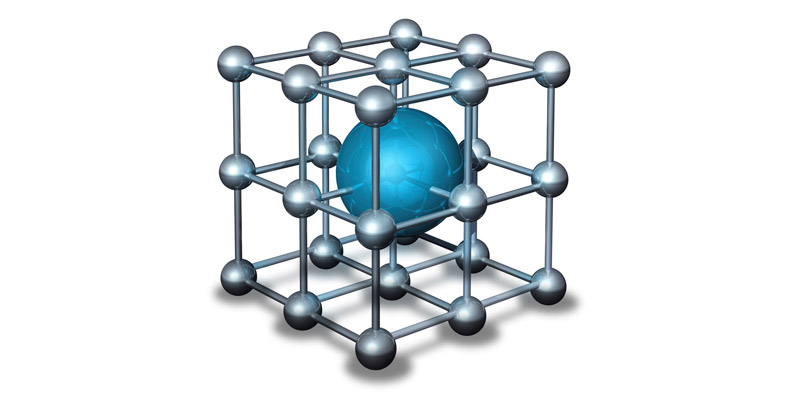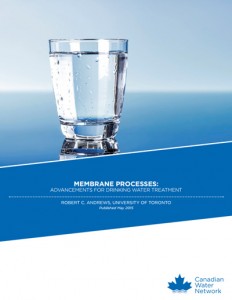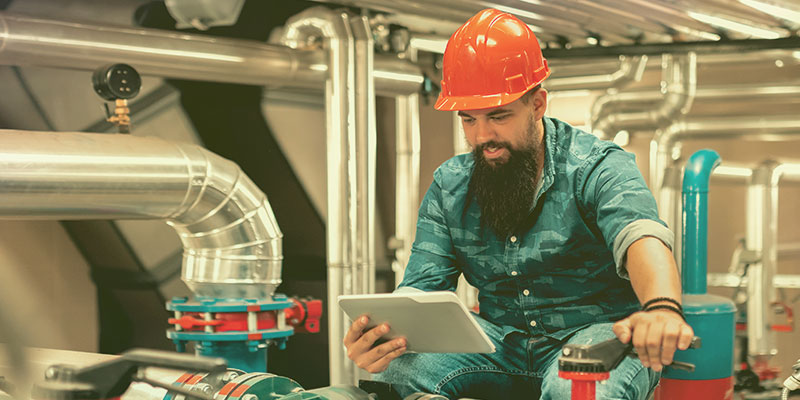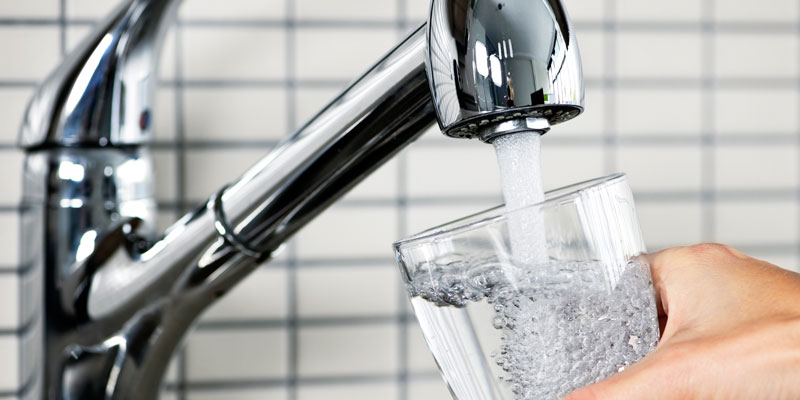Development of New Membrane Materials that Incorporate Novel Nano-Materials with Functionalities That Can Oxidize NOM and Inactivate Pathogens
Principal Investigator - Pierre Bérubé, Professor, University of British Columbia (2009-2011)

Challenge
Membrane technologies are increasingly being used for water treatment applications. This is in part due to the ability of membrane systems to effectively remove many viruses and bacteria from raw water sources at relatively low cost. Unfortunately, because of their small size, viruses and natural organic matter are not as effectively removed by ultrafiltration (UF) membranes. Moreover, the performance of UF membranes is also dependent on its ability to sustain a high permeate flow, which can be achieved by limiting the extent of fouling that occurs on and/or in the membrane due to the presence of natural organic matter. Nano-materials have specific functionalities, such as the ability to oxidize organic material and/or inhibit microbial growth. The integration of these materials directly into UF membrane materials could enable the effective removal of all pathogens and natural organic matter, as well as reduce membrane fouling.
This proposed project aims to improve efficacy of ultrafiltration membrane technologies for removing pathogens, viruses and natural organic matter from wastewater. By integrating nano-materials (nano-particles and fibers) into polymeric membranes, this project team, led by Dr. Pierre Bérubé, intends to develop the first generation of integrated membrane materials that will be capable of inactivating pathogens of any size and oxidizing natural organic matter.
Project
The project team will first develop a novel membrane material that is structurally stable by designing a multi-component fibrous membrane that incorporates specific functionalities that include the ability to inactivate pathogens and oxidize natural organic matter. This will be performed at the Advanced Materials and Process Engineering Laboratory at the University of British Columbia. This will be followed by a characterization study of the pathogen inactivation and natural organic matter oxidation functionalities of the multi-component fibrous membrane at bench-scale.
Preliminary results show that the addition of nano-materials (inorganic catalysts) reduced the likelihood of membrane breakage, increasing the expected operating life of the membrane at a low cost. Also, an oxidative environment at the membrane surface significantly increased the extent of natural organic matter oxidation and decreased the extent of membrane fouling compared to providing oxidation prior to membrane filtration. Numerical and experimental studies are currently being performed to assess and optimize the reinforcement of membranes with microfibers.
Outputs
This project will enable the development of new technologies and materials, including:
- Development of improved membrane materials that will be adopted for full-scale applications.
- Development and delivery of a one-day membrane technology course for engineers and other water quality practitioners. The course is offered as part of the Association of Professional Engineers of British Columbia continuing education seminars or the equivalent in Quebec (Réseau des Ingénieurs du Québec).
- Development of protocols to make and test different membrane materials.
Researchers have worked to disseminate the findings of the project:
- A website for the Filtration Technology Research Group at the University of British Columbia (UBC) was developed in 2011. The website content includes research outcomes from all recent and ongoing projects (including the present project).
- Scholarly publications:
- Delmont Lafond L., Giovanna Llamosas Chu I., Abdullah Z.S., Barbeau B. and Bérubé P.R. Effect of long term exposure to oxidative environment on properties of PVDF and PVDF/TiO2 ultrafiltration membranes, will be submitted to the Journal of Membrane Science.
- Zhou W., Ko F., Bahi A., Yang H., Konig N., Bérubé P.R. Barbeau B. Structure and Properties of PVDF/TiO2 Nanofibre Membranes, manuscript completed and being reviewed. Will be submitted to the Journal of Membrane Science.
Outcomes
Changes in practice due to the development of more efficient membrane systems, both in terms of contaminant removal and permeates flow.
Development of a partnership with Sanitherm Engineering.
GE Water and Process Technologies was not originally a collaborator on this project; however, GE is now a partner due to the work conducted by this project team on the long term effect of an oxidative environment on membrane weathering which is expected to lead to increases in membrane operating life.
Although the project focused on developing and assessing novel membrane materials at laboratory-scale, it is anticipated that the project team will test the most promising membrane materials at full scale in the near future in collaboration with Sanitherm Engineering. If novel materials perform well at full-scale, it is expected that it would be adopted by water quality practitioners that design membrane systems.
Informed decision-making due to development of protocols to make and test different membrane materials. These protocols are now extensively used and are critical to a number of other ongoing research projects at UBC and École Polytechnique.
This project will develop new technologies and materials:
- Development of improved membrane materials that will be adopted for full-scale applications.
- Development and delivery of a one-day membrane technology course for engineers and other water quality practitioners. The course is offered as part of the Association of Professional Engineers of British Columbia continuing education seminars or the equivalent in Quebec (Réseau des Ingénieurs du Québec).
- Development of protocols to make and test different membrane materials.
Researchers have worked to disseminate the findings of the project:
- A website for the Filtration Technology Research Group at the University of British Columbia (UBC) was developed in 2011. The website content includes research outcomes from all recent and ongoing projects (including the present project).
Scholarly publications:
- Delmont Lafond L., Giovanna Llamosas Chu I., Abdullah Z.S., Barbeau B. and Bérubé P.R. Effect of long term exposure to oxidative environment on properties of PVDF and PVDF/TiO2 ultrafiltration membanes, will be submitted to the Journal of Membrane Science.
- Zhou W., Ko F., Bahi A., Yang H., Konig N., Bérubé P.R. Barbeau B. Structure and Properties of PVDF/TiO2 Nanofibre Membranes, manuscript completed and being reviewed. Will be submitted to the Journal of Membrane Science.





